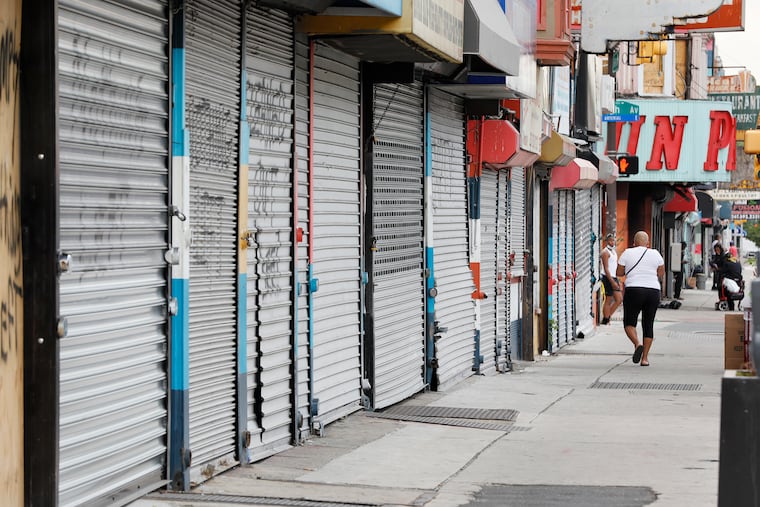To keep Pennsylvania’s small businesses alive, revive a credit program that worked | Opinion
As Joe Biden has rightly suggested, Congress should bring back the State Small Business Credit Initiative that helped post-2008 recession recovery.

Far too many small-business owners like Scott Richardson of Swarthmore — a restaurant owner who spoke at this week’s Democratic National Convention — have been struggling to survive the COVID-19 pandemic, left with minimal support from the federal government to weather the worst economic crisis since the Great Depression.
While Gov. Tom Wolf is taking critical steps to provide emergency relief, action at the federal level is desperately needed to help these small businesses recover and prosper in the months and years ahead.
One step Congress can take immediately is to resuscitate the State Small Business Credit Initiative (SSBCI), which was a very successful part of the Small Business Jobs Act of 2010 but expired in 2017.
In the wake of the 2008 financial crisis, SSBCI unlocked $1.5 billion for states to support small-business financing programs. It was a clear lifeline for scores of American businesses, but especially for those located in rural and low- and moderate-income areas. In fact, in just five years, the program supported nearly $8.4 billion in new capital through small-business loans and investments.
Congress should reinstate the program. And as Democratic presidential candidate Joe Biden has rightly suggested, they should also extend it to 2025 and double to $3 billion the amount of federal funding that was made available in the post-2008 package. Doing so now would give small-business owners the funding they need to make the payrolls and pay the utilities and rent which are their foundations.
This type of aid is needed right now more than ever. An overwhelming majority of businesses in the Philadelphia region — 99.7% — qualify as small, employing fewer than 500 people. Hundreds of them have permanently closed in the wake of the pandemic.
Philadelphia and Pennsylvania are, of course, not alone. In New York City, about one-third of small businesses are expected to be gone for good, more than 2,000 small businesses have permanently closed in San Francisco, and about 14% of small businesses in Columbus, Ohio, remain closed. Nationwide, roughly 66,000 businesses had closed their doors between March and July.
And as has been the case in the past, minority-owned businesses are being hit especially hard. Nationwide between February to April, the number of active Black-owned business owners fell 41%, and Latinx business owners fell 32%. The number of white business owners, by contrast, fell by 17%.
Unfortunately, the situation could get even worse with the Aug. 8 expiration of the Paycheck Protection Program, as only 16% of businesses that received PPP loans are confident they can pay their employees without further assistance.
To lend a helping hand to America’s small businesses, the heartbeat of our economy, policymakers must provide an avenue through which the federal government can fund small-business financing programs. Reauthorizing and expanding the State Small Business Credit Initiative would create that avenue, and it should be a bipartisan solution.
The reality is that small businesses need more than a Band-Aid solution — they need a formidable long-term plan that will drive equitable and sustainable growth. Congress should start with a program that we know works well.
Leo Hindery Jr. is co-chair of the Task Force on Job Creation and a member of the Council on Foreign Relations. Formerly the CEO of AT&T Broadband and its predecessor, Tele-Communications Inc., he is currently an investor in media properties. The opinions expressed in this commentary are his own.